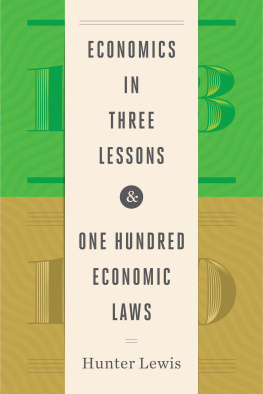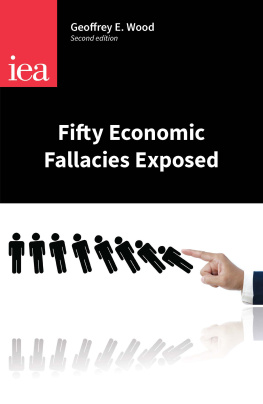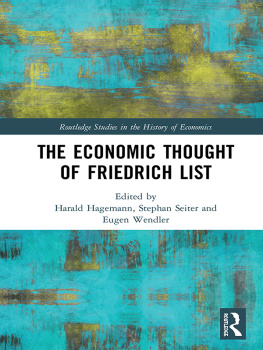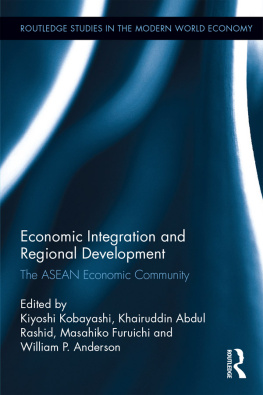Routledge Revivals
The Economic Effort of War
The course of economic events from the start of the Second World War satisfied no-one. The housewife was exasperated by the rise in food prices, thousands of workers faced unemployment, and businessmen were bewildered by the flood of regulations and decrees. In this book, first published in 1940, R. W. B. Clarke explores the economic challenges that the UK faced in coping with the war, and possible ways in which these challenges could be resolved or improved. The book is vital reading for students of modern history and economics.
RWB Otto Clarke had a major influence in resolving Britains post-War financial problems and transforming the way Britains public finances were managed. Earlier, in 1935, he devised the FT30 share index (now the FTSE100 index). He rose to be Second Permanent Secretary at HM Treasury, was knighted Sir Richard Clarke and later became Permanent Secretary at the new Ministry of Technology.
The Economic Effort of War
R. W. B. Clarke
First published in 1940
by George Allen and Unwin Ltd
This edition first published in 2015 by Routledge
2 Park Square, Milton Park, Abingdon, Oxon, OX14 4RN
and by Routledge
711 Third Avenue, New York, NY 10017
Routledge is an imprint of the Taylor & Francis Group, an informa business
1940 R. W. B. Clarke
The right of R. W. B. Clarke to be identified as author of this work has been asserted by him in accordance with sections 77 and 78 of the Copyright, Designs and Patents Act 1988.
All rights reserved. No part of this book may be reprinted or reproduced or utilised in any form or by any electronic, mechanical, or other means, now known or hereafter invented, including photocopying and recording, or in any information storage or retrieval system, without permission in writing from the publishers.
Publishers Note
The publisher has gone to great lengths to ensure the quality of this reprint but points out that some imperfections in the original copies may be apparent.
Disclaimer
The publisher has made every effort to trace copyright holders and welcomes correspondence from those they have been unable to contact.
A Library of Congress record exists under LC control number: 40013786
ISBN 13: 978-1-138-83311-1 (hbk)
ISBN 13: 978-1-315-73559-7 (ebk)
ISBN 13: 978-1-138-83312-8 (pbk)
THE ECONOMIC EFFORT
OF WAR
by
R. W. B. CLARKE
London
George Allen & Unwin Ltd
FIRST PUBLISHED IN 1940
ALL RIGHTS RESERVED
PRINTED IN GREAT BRITAIN
in II-Point Baskerville Type
BY UNWIN BROTHERS LIMITED
WOKING
THE COURSE of economic events since the war began has satisfied no one. The housewife is exasperated by the rise in food prices and the actual shortages; thousands of workers face unemployment and see no prospect of getting work; business men are bewildered by the flood of regulations and decrees; civil servants see carefully prepared plans destroyed by ill-informed and by no means disinterested criticism ; men and women who joined new Ministries at the outbreak of war find themselves thwarted and disappointed by the lack of opportunity to get things done, and the Government has to meet a barrage of criticism more unanimous and virulent than any that it had to face in peace-time.
This is a state of affairs of extreme danger. Its effect upon morale is highly damaging; when the Government should be leading and inspiring the people, it is floundering. It may conceivably endanger the prospect of victory, for Britains strength is primarily economic, and failure to exert that strength effectively simply means failure to win the war.
The worse the muddle gets, the more difficult becomes the task of righting it; the voice of constructive criticism is drowned by the shouts of vested interests, which at the beginning of the war were on the defensive, fearing suppression, but have recovered their self-confidence and are entrenching. How else, indeed, can one explain the Governments rejection of the Ministry of Foods plan for comprehensive rationing, a plan proved by hard experience to be absolutely essential? How otherwise can one explain the gradual retreat from pooling and standardization, proved means of reducing costs of production and distribution, and so of maintaining the standard of life in wartime?
So vociferous is the criticism of the Government, indeed, that there is real danger that it may serve a destructive purpose. The whole principle of control, the need for which has been demonstrated time and time again, is now seriously endangered. The lessons of the last war, learnt painfully and at awful cost of life and material, are being jettisoned. At the present rate, it may soon become psychologically impossible to introduce the forceful and energetic measures which the situation requires.
Why has this happened? How can the muddle be righted? There has been altogether insufficient understanding, by the Government and by the public, of the nature of the problems which arise, of the principles which are involved, and of the objectives which must be attained. This book is an attempt to explain them; it is an attempt to establish the first principles of wartime economic policy, and to relate them to the actual situation.
To do this, it is necessary to make assumptions about the possible scale of the war effort. I have assumed that, at the peak of the war, total Governmental expenditure will be running at the rate of 4,000,000,000 a year at pre-war prices, a figure which may be compared with the present 2,400,000,000 a year. I have tried to show what such an effort would mean in terms of the standard of living, man-power, the Budget, and so on. If the effort is less than this, the economic sacrifices which will be required will be less than I anticipate. But this would be no source for satisfaction; it would simply mean that the nation was achieving less than its maximum potential war effort. And to believe that we can defeat the Nazis with less than the maximum effort is childish optimism.
Wherever possible, I have tried to supply facts and figures, and I have given specific references for these figures, except where they are taken from well-known British official sources. The work of Mr. Colin Clark is an indispensable foundation for any factual analysis of the economic structure, and I have drawn upon it extensively. I am much indebted to Mr. W. T. C. King for valuable comment, and likewise to Mr. Jules Menken, with whom and others I had hoped to collaborate in a major work on national defence problems as a whole, an enterprise which was unfortunately cut short by the war when within sight of completion.
R. W. B. CLARKE
NOVEMBER 7, 1939
Contents
EVER SINCE the last war, we have been aware that modern warfare is economic war. The Allies industrial and financial resources, rather than their preponderance in the field, decided the last war, and there is not much doubt that the group of nations which can produce armaments fastest will win this one. Once the initial stocks of armaments have been exhausted, the war will become a struggle of economic systems. It is upon this fact that our confidence in victory is based, for our economic superiority over Germany is overwhelming, and is in reality much greater than it was in 1914. The caution which both sides have used so far in the expenditure of war material underlines the importance of the economic factor, and strongly suggests that in the long run the economic factor will be decisive.









